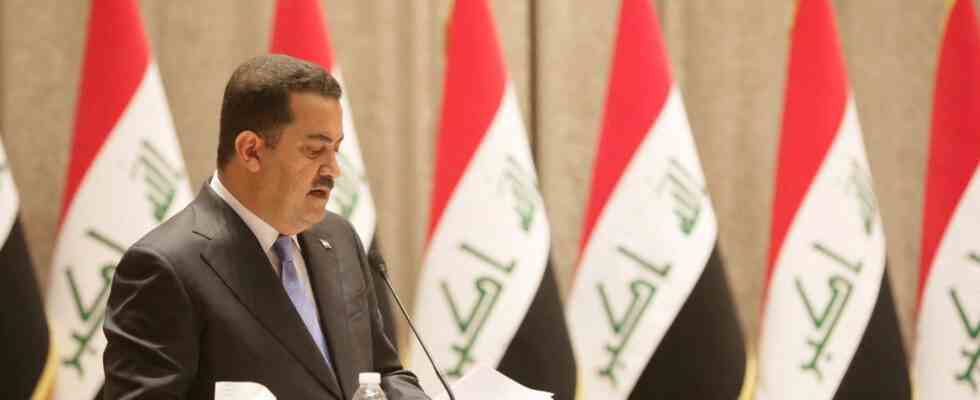Status: 28.10.2022 09:24 am
After a year of political struggles, Iraq has a new government. Parliament approved the cabinet of the new Prime Minister Sudani. The country was shaken by heavy protests after the election.
Around a year after the parliamentary elections in Iraq, the country’s parliament confirmed the new government in a vote of confidence – ending a months-long political crisis.
The new government is headed by Prime Minister Mohammed Shia al-Sudani. 20 ministerial posts in his cabinet have already been filled, only the offices for the environment and housing have yet to be filled.
In a speech in front of parliament, al-Sudani pledged to take action against the “accumulating crises” in Iraq. The prime minister focused on strengthening the economy, creating new jobs and fighting poverty. “We sincerely promise our great people to make every effort to achieve success,” al-Sudani said.
At the same time, Sudani faces the challenge of reconciling the divided Shiite factions in Iraq, but also of managing rapprochement with other political camps – with the focus being primarily on the supporters of the influential Shiite leader Muqtada al-Sadr.
Shiite leader al-Sadr as election winner
The current under al-Sadr was clearly the strongest force in the parliamentary elections in October 2021. However, after his election victory, al-Sadr failed to form a government. He refused to cooperate with the pro-Iranian parties. For months, he and former Prime Minister Nuri al-Maliki have been arguing about who will appoint the future prime minister.
The elections were brought forward after mass protests overthrew the then-government in 2019.
Eventually, al-Sadr ordered his withdrawal from parliament, after which al-Maliki’s allies managed to forge an alliance with Kurdish and Sunni parties to form a government. The alliance nominated al-Sudani as the future prime minister, but before that a president had to be elected who could give the mandate to form a new government. Only about two weeks ago, Abdel Latif Raschid was elected president.
Since the US-led invasion of Iraq in 2003 and the overthrow of the then ruler Saddam Hussein, central offices in Iraq have been divided according to a system in which all major political groups participate. The president is always a Kurd, the prime minister a Shia and the speaker of the parliament a Sunni.
Massive protests after al-Sudani nomination
After al-Sudani was nominated as a possible new prime minister, protests between supporters of al-Sadr and security forces broke out in August. Some of the protesters occupied the parliament building in Baghdad. The center of the city, the so-called Green Zone, was even hit by rockets. According to figures from the Iraqi Ministry of Health, at least 25 people were killed in the clashes and hundreds were injured.
Finally, al-Sadr himself called for an end to the protest and the violence associated with it. However, he refused to participate in a new government. It is the first time in around 20 years that Iraq has been run by a government without the involvement of his camp.

